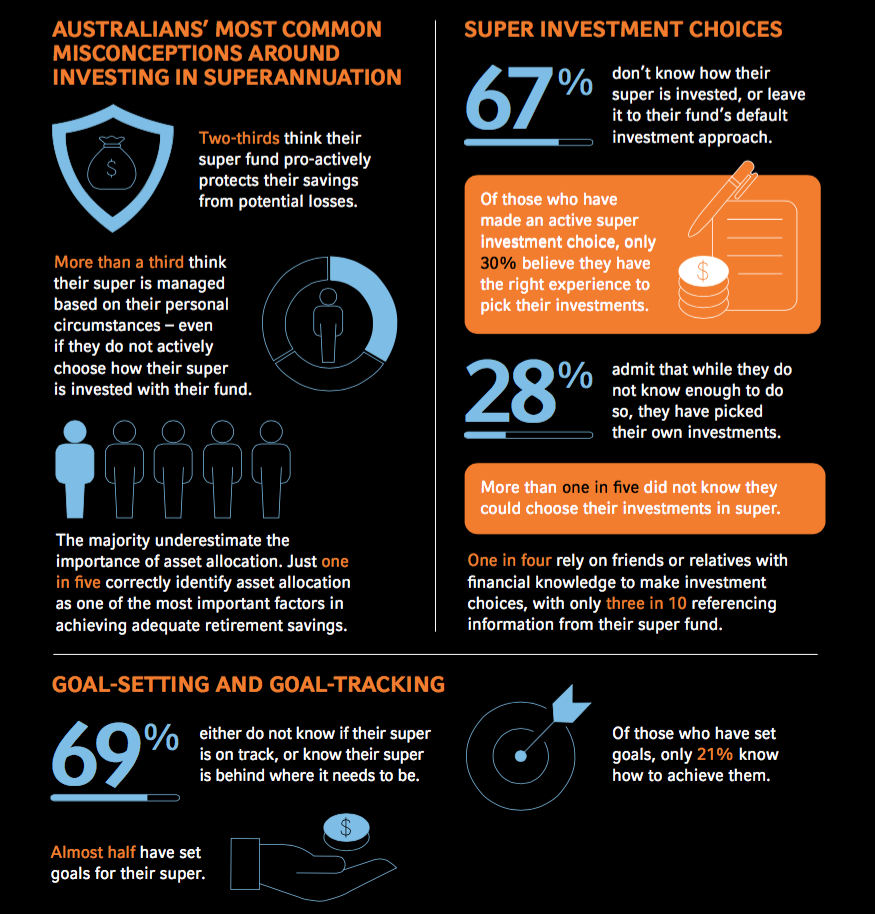Russell to offer new retirement service, member research
Russell Investments has published the results from a 3,000-member survey of working Australians which support the firm’s plans to launch a more sophisticated investment strategy for everyone approaching, or in, retirement. It will take account of personal goals as well as assets outside of super.
The new service will be launched within the next couple of months and will allow super funds – large and small – to add some member robo-advice to a better usage guide of their existing member information. This should enable a more appropriate asset allocation strategy for members. Jodie Hampshire, Russell Australia’s managing director, says it represents the “mass personalisation” of super, which is the “way of the future”.
The research comes as fear around the erosion of Australia’s retirement savings intensifies, with the latest figures revealing the average growth (balanced) fund dropped 9 per cent in the month to March 31 and 10.1 per cent for the March quarter. While the Australian share market has since rallied to record its best month since 1988, April was still characterised by whipsawing volatility. Russell Investments surveyed more than 3,000 working Australians in January this year, prior to the market collapse, to gauge their perceptions of investments within superannuation. A topical misconception was the belief that super funds automatically de-risk to protect members from potential losses during a market downturn – a view held by two thirds of working Australians surveyed.
Meanwhile, more than a third (37 per cent) believed their fund already manages their investments based on their own personal circumstances – even if they do not actively choose how their super is invested within their fund.
“Critically, the research found the majority underestimate the importance of asset allocation in driving returns. Just one in five people correctly identify asset allocation as one of the most important determinants in achieving adequate super savings for retirement – showing a lack of connection between how super is invested and retirement outcomes,” the research report says. Jodie Hampshire said the impact of COVID-19 had shed light on how exposed many Australians remain in today’s modern defined contribution super environment – but it also gave clear direction on how we can do better.
She said enabling members to adopt more individual, goals-based investment strategies was an emerging path for global retirement plans to help members better manage their investment choices – and thus retirement outcomes – through inevitable market cycles. “As an industry we can, and should, be doing more to help investors navigate this climate of increased uncertainty,” Hampshire said. “For working Australians, asset allocation is one of the strongest factors driving retirement income adequacy. Therefore, having the right asset allocation at the right time is critical – members who don’t take on enough risk when they are able to could see their super balances stagnate while overly aggressive asset allocation at the wrong time can jeopardise a lifetime of savings.”
She says that many funds provide good education and communications to their members but a lot of it is very general in nature. The Russell research, both in Australia most recently, but also overseas, shows that members really need more personal advice and investment guidance. “Technology has advanced to the point where you can have mass customisation and personalisation,” she says.
Hampshire, who has worked at Russell for than 20 years in Australia and the UK, as well as doing a senior stint at Mercer in that period, says that super funds could learn from the fitness industry and their smart apps. Fitness apps, apparently, can transform a person’s behaviour with a training regime. Other key findings from the Russell research include:
- 67 per cent of those surveyed do not know how their super is invested or leave it to their fund’s default approach
- More than one in five (21 per cent) did not know they could choose their investments in super
- Those who have made an active investment choice are significantly more likely to have also set a goal for the amount of super they want to save for (or spend in) retirement
- For those who have made an active investment choice within their super: Only 30 per cent believe they have the right investment experience to pick their own investments. Meanwhile, 28% still pick their own investments, despite admitting they don’t have much investment experience, and
- When making their investment choices, one in four rely on help from a friend or relative with financial knowledge. Meanwhile, only three in ten say they reference information from their super fund.
– G.B.











